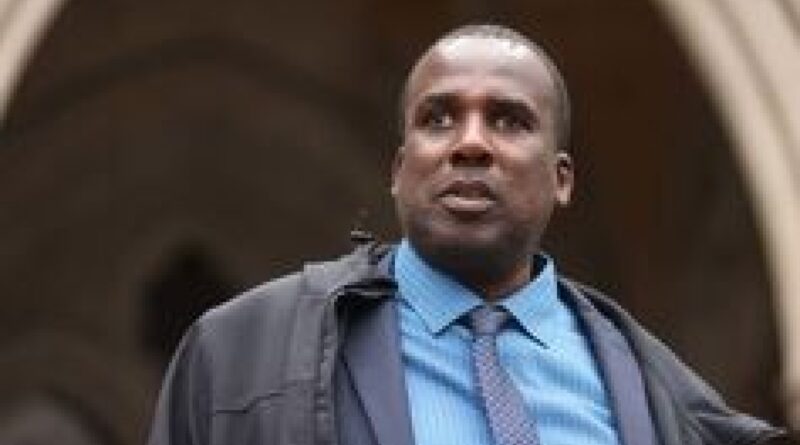Oliver Campbell’s wrongful conviction for murder finally overturned after 33-year struggle

Oliver Campbell was convicted of shooting dead a shopkeeper in 1991 (Image: Ian Vogler / Daily Mirror)
A man who spent 11 years in jail for a murder he did not commit has described finally having conviction quashed more than 30 years later as a massive weight off his shoulders.
Oliver Campbell, who has severe learning disabilities, was sentenced to life imprisonment in 1991 after being found guilty by a jury at the Old Bailey for the murder of Baldev Hoondle at Hackney’s G and H Supermarket.
But the 54-year-old has long protested his innocence, claiming he was mistaken for the real gunman and that police took advantage of his condition to pressure him admitting a crime he did not commit.
His lawyers have described the case as a “devastating miscarriage of justice” that is the longest in British history. It comes just a year after Andrew Malkinson’s wrongful rape conviction was quashed.
Mr Campbell, who has been on life licence since his release from prison in the early 2000s,
Glyn Maddocks, Mr Campbell’s solicitor who fought for nearly a quarter of a century to overturn the conviction, said the judgment shows enormous flaws in the criminal justice system.
He said: “Oliver deserves enormous credit for keeping his quest for justice alive. He didn’t give up. He’s been a dogged and determined fighter for justice.
“There probably hasn’t been an hour of the day when he hasn’t been thinking about clearing his name.
“It takes precedence over everything else. Your whole life is utterly determined by this sense that the state has taken away your liberty and labelled you as a murderer when you haven’t done it. What could be worse than that?
“The odds are stacked very heavily against anyone who wants to clear their name when the facts are clear they didn’t do it. It shouldn’t be as difficult as it is.”

Oliver Campbell has long been supported by a team of friends (Image: Ian Vogler/Daily Mirror)
Suspicion initially fell on Mr Campbell, who today lives in Suffolk, because the robbers dropped his distinctive “Black Knights” cap as they fled the murder scene on Sunday, July 22, 1990.
Barrister Michael Birnbaum said the real killer stole Mr Campbell’s cap and wore it during the robbery – and that police therefore “jumped to the conclusion that he must’ve been the shooter”.
Mr Campbell, nearly 20 at the time, was arrested and often questioned without a lawyer or appropriate adult present.
Crucially, his legal representative was not present when he “confessed” to the murder, telling officers: “I, I like pulled the trigger by accident.”
But supporters of Campbell said head injuries he sustained as an eight-month-old baby, which left him with a borderline defective IQ, meant he “simply was not capable of carrying out such a crime”.
Campbell’s disabilities mean he cannot process or remember anything more than the simplest verbal information.
One effect of his difficulties is that he is suggestible, meaning he is highly likely to agree with whatever he thinks people want to hear.
Trending
Invalid email
We use your sign-up to provide content in ways you’ve consented to and to improve our understanding of you. This may include adverts from us and 3rd parties based on our understanding. You can unsubscribe at any time. Read our Privacy Policy
Mr Maddocks said his client was a “lamb to the slaughter” during the police interviews and subsequent trial.
“Oliver was confused,” he said. “He believed at the time that if he confessed they would let him go.
“He’d have owned up to being President Kennedy if they’d pushed him harder.
“Very experienced police officers ran rings around him and made him confess to something he didn’t do.”
Doubts first started to emerge about Mr Campbell’s conviction in 2000, when a ballistics expert told the BBC’s Rough Justice documentary that the gun must have been fired by a right-handed shooter. Mr Campbell is left-handed.
But the Criminal Cases Review Commission (CCRC), which investigates potential miscarriages of justice, did not refer Mr Campbell’s case for appeal until 2022 after chairwoman Helen Pitcher said “the full extent of his vulnerabilities were not properly understood” at the time of the original trial.
A report by Gísli Guðjónsson, an international expert on false confessions and false memory syndrome, was a key part of the review.

